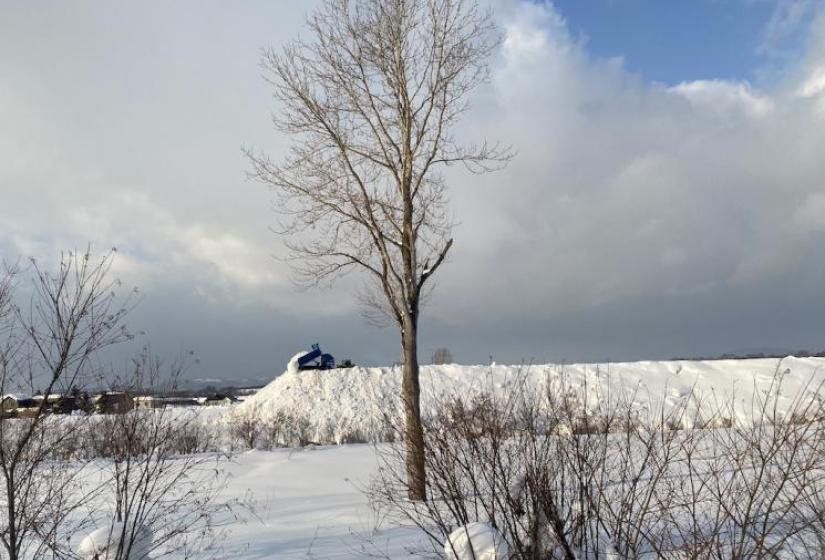Truck loads Of Snow
If you have ever visited Niseko the first thing you will usually remember is the snow! The amount of snow the area gets is really quite incredible with many years seeing more than 15m of snowfall a season. Last winter was no different with one of the biggest Decembers in decades and consistent snowfall well into March.
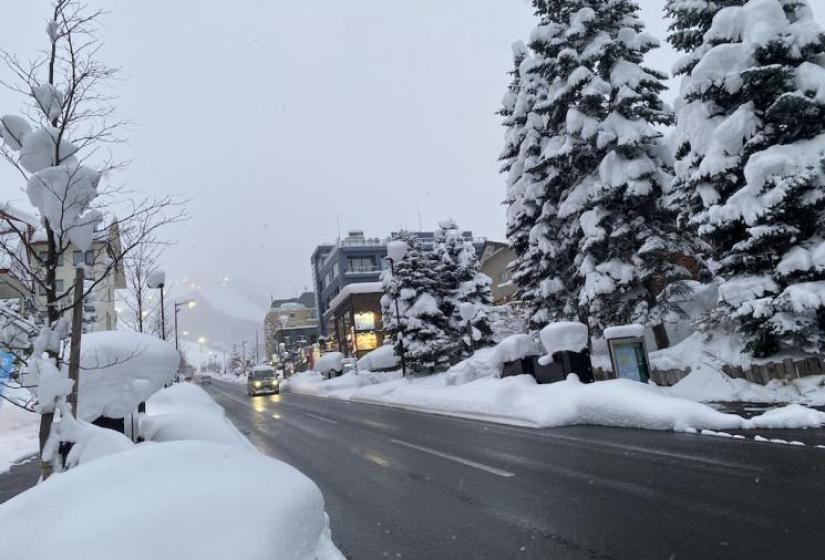
Now depending on where you are from, the snow you will see in Niseko may well be the most you'll ever see in your life. In many countries snow in the city can bring life to a stand still with roads and schools closed and driving near impossible. Here in Hokkaido life continues without so much as a blink of an eye, seemingly no matter how much snow falls. So how does the area deal with so much snow?
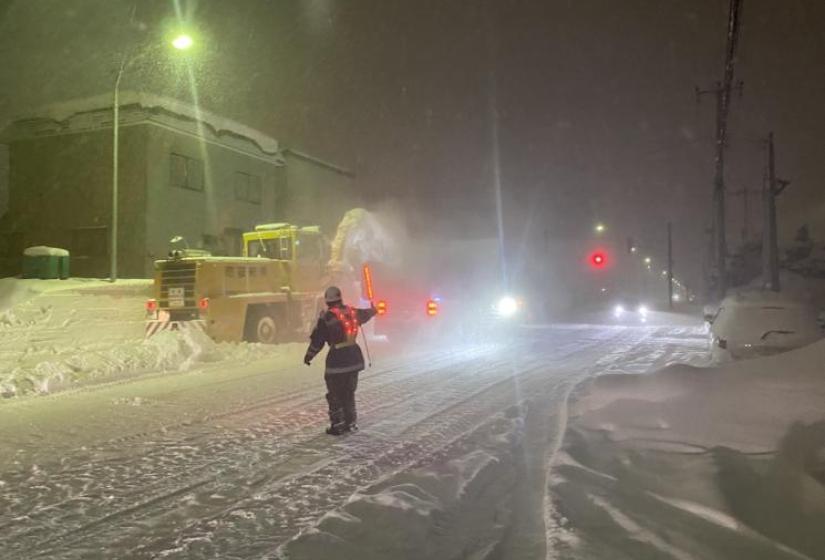
Hokkaido moves approximately 20 million tons of snow a winter from its roads and the price tag for the Sapporo area alone is in excess of 20.4 billion yen (approximately US$190 million). The machine you see above is a mighty Rotary Jyosetsushya or rotary snow blower, a machine that makes life in the long snowy winter in Hokkaido possible. Of course they don't work alone and are assisted by an army of tire shovels, fleets of dump trucks and plenty of hardy men and women regulating things with glowing sticks.
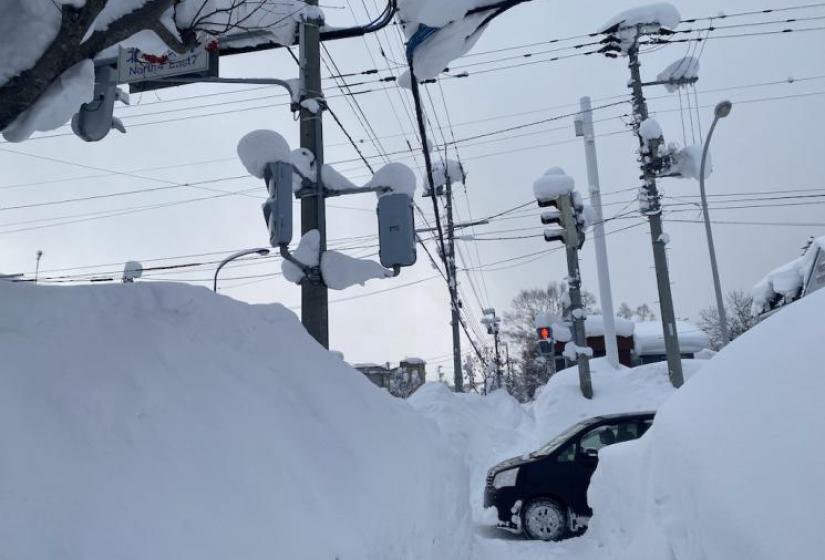
Just a few kilometers down the road from Hirafu lies Kutchan, which according to wikapedia is one of the snowiest towns on earth. During the winter space becomes a premium as every spare inch is slowly but surely taken up by snow. The only relief is the truck loads of it that are removed on a daily basis, freeing up roads, foot paths and driveways.
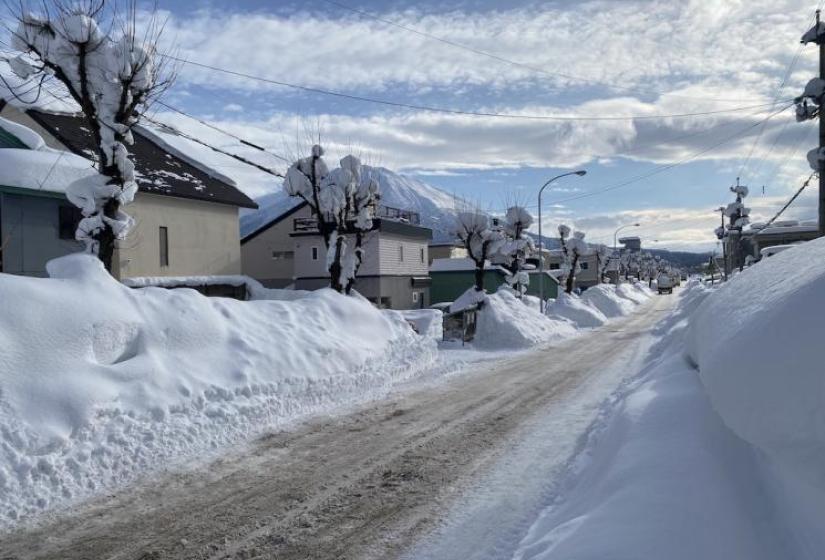
When the snow is falling public roads are cleared with clock work efficiency but for every grader pass the snow banks encroach a little further onto the roads until many morph into a one way impassable for two cars at a time. Until the Josetsushya and its many support vehicles return to clear the streets and fill the trucks once again.
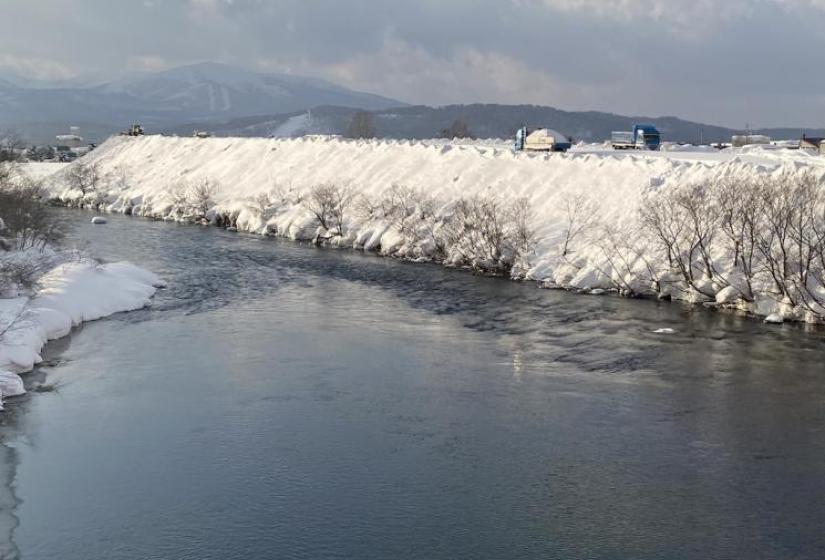
The endless tonnage of snow is taken to snow dumps on the outskirts of the town where it sits until the spring rains help it on its journey back to whence it came, back into the sea of Japan.
